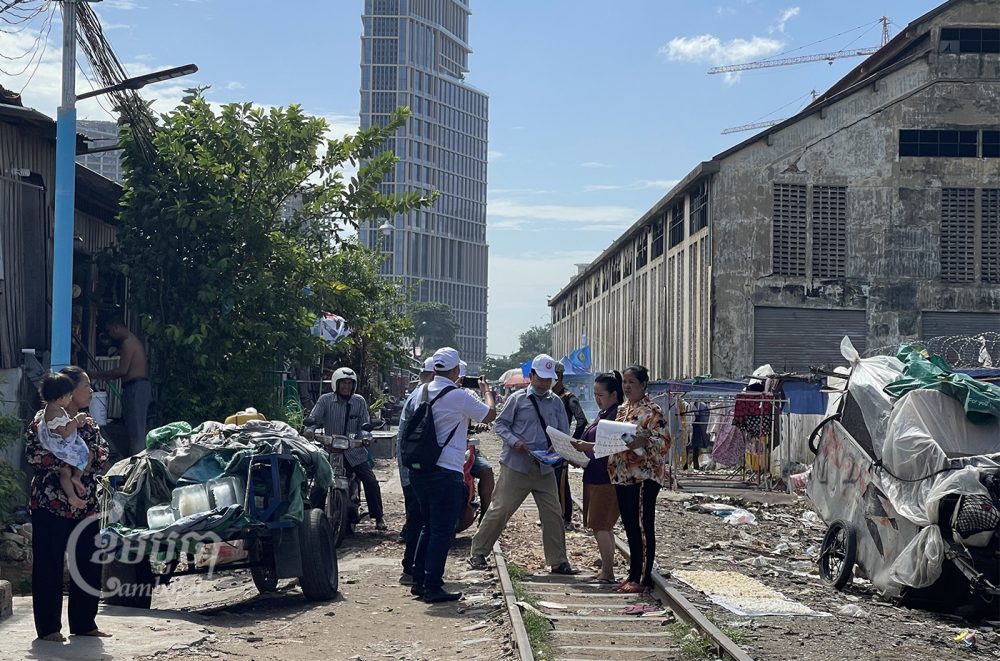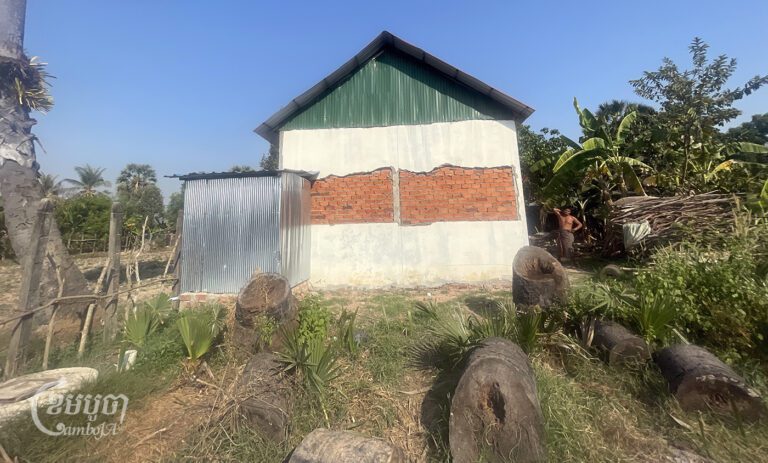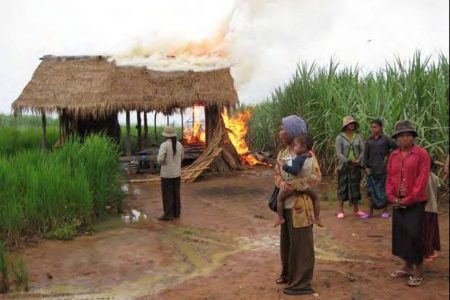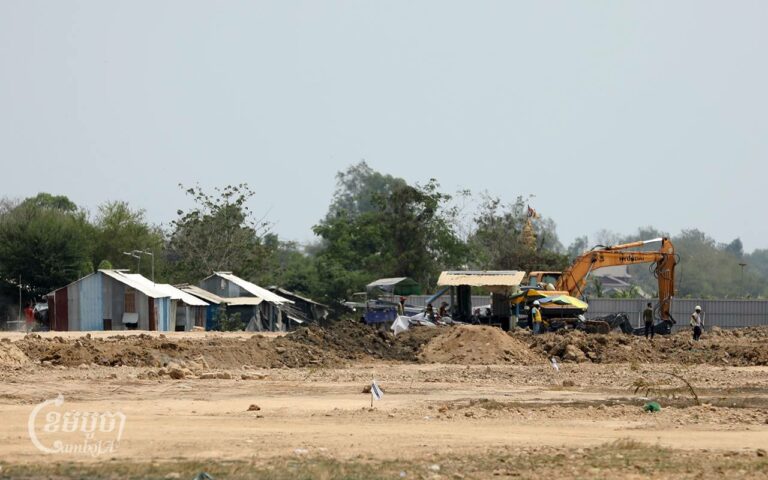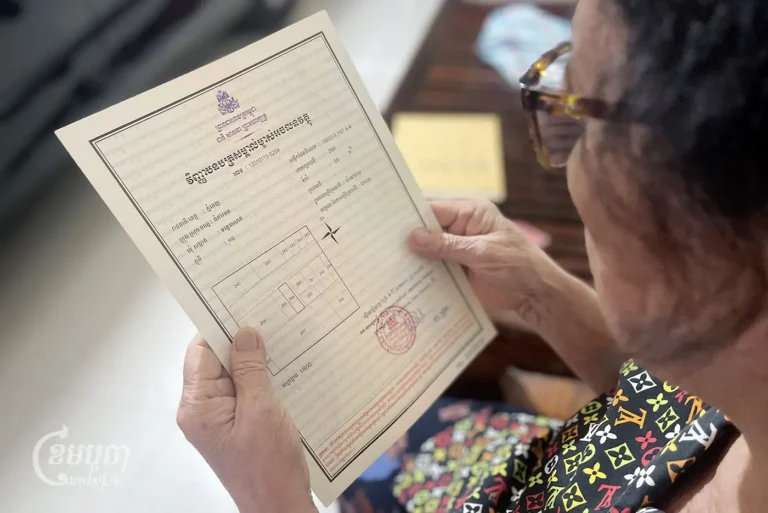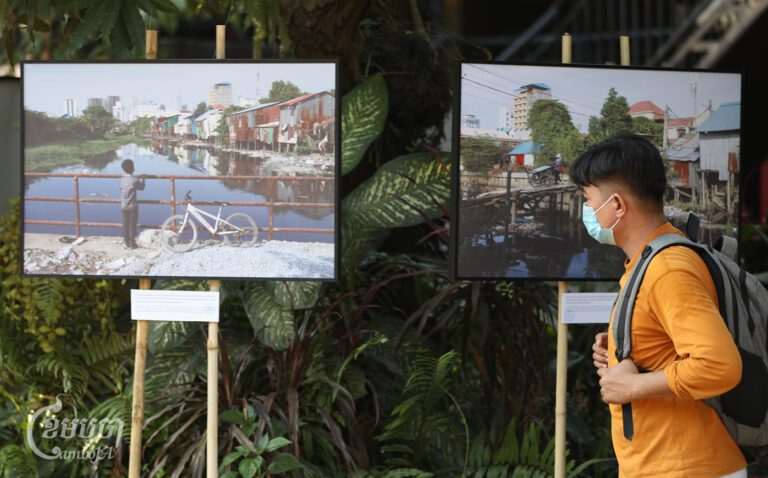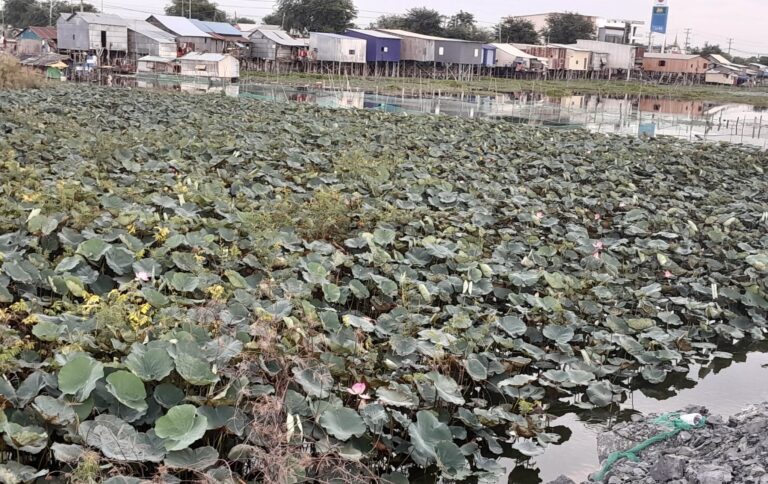Seng Pha, 63, is unable to read the leaflets of the Cambodian People’s Party (CPP) posted on the wall of her wooden house, but she recognizes one of the candidates running for commune chief, out of a total of 35, in Boeung Kak II commune.
Pha, who has been living alongside the railway track since 1990, said she wants to see the new candidates address the issues in her community, particularly the question of where railway families like hers will be relocated following a recent development.
“We have not heard any party raise the issue [of our relocation]. I don’t care which party they are from. I think that the newly elected local leader should help people so that they can continue to live here,” she said.
Phnom Penh’s authorities are developing a 12-meter concrete road and drainage system alongside the railway, affecting dozens of families living alongside the track that stretches from Tuol Kork district to Daun Penh and Russei Keo districts. Families from Tuol Kork have yet to receive a resolution to the dispute.
This has resulted in more than thirty families living alongside the track being required to relocate outside the city. So far, the families have refused and continue to call on municipal authorities to let them remain where they are in the capital.
In 2020, the Tuol Kok district office gave Community 17 one month to leave their homes. Four months later, the pending eviction still hangs over their heads. The families say they will not leave without a better offer, such as resettlement in Toul Kok or Russei Keo districts. Since then, their lives have remained in limbo.
As the commune election campaign begins, only the CPP has installed a campaign tent alongside the dirty railroad in Phnom Penh’s Boeung Kak II commune, with a few CPP’s members disseminating and distributing leaflets to the public.
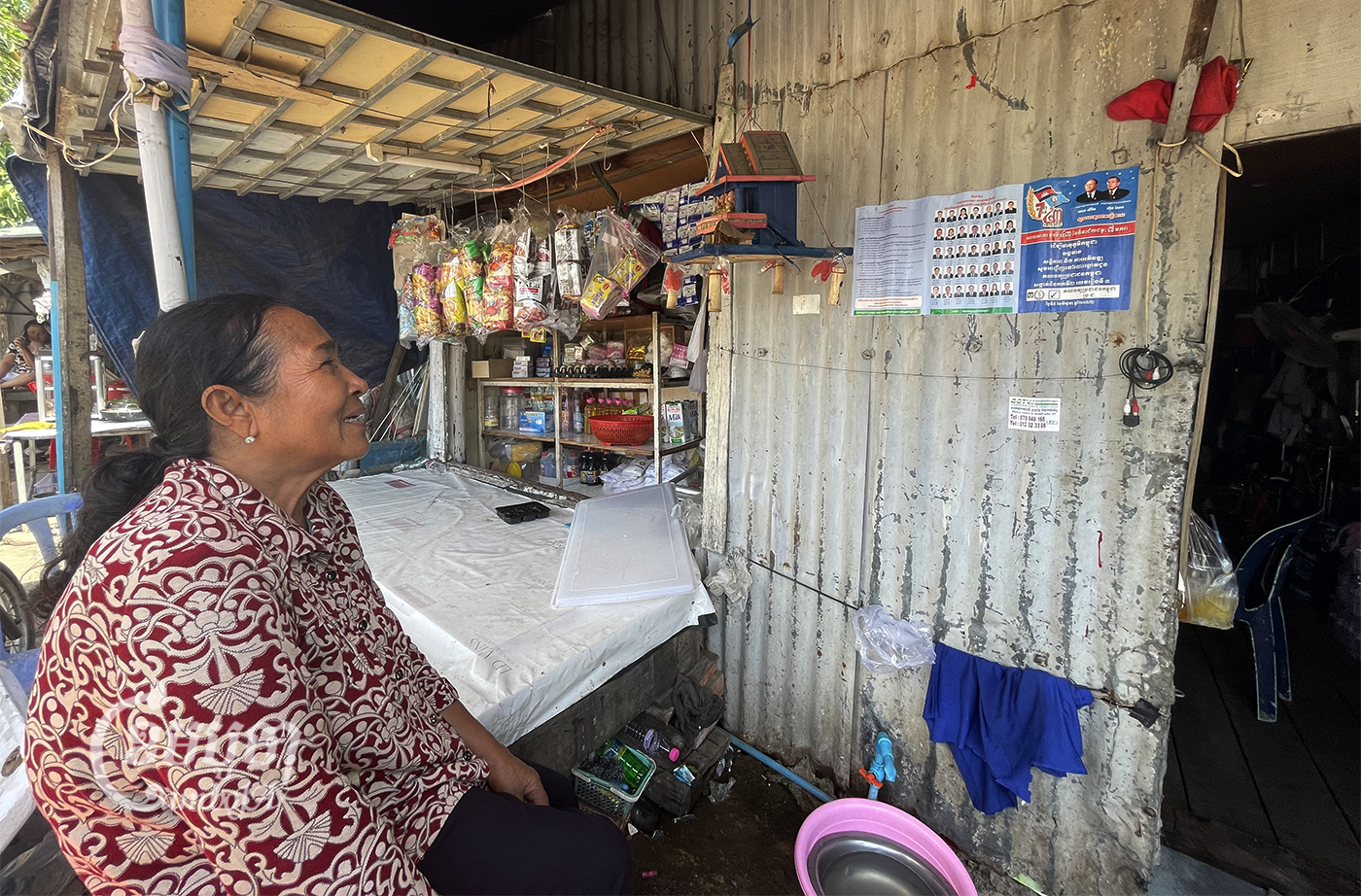
Iev Mach, a 62-year-old scavenger who has lived here since 1992, told CamboJA that the authorities required her to demolish her house without compensation, which she refused.
“We do not know how they will deal with it, because during the campaign they did not talk about this issue. They just said there are no plans to dismantle the house yet,” she said. “The commune authorities previously told us to stay calm and just sleep well, but I still feel no comfort so far.”
Mom Sopheap, a 41-year-old resident of Village 17 who is also affected by the development, said that only two political parties, the CPP and Candlelight Party, have been seen campaigning in the community. However, nothing was raised about the issue of relocation or compensation to the railway communities.
“The Candlelight Party just distributed leaflets while the CPP taught people how to tick in the party’s box,” she said, adding that she is worried the authorities will evict all of them and clear their homes.
Seventeen Cambodian political parties began their two-week campaign period on Saturday, in anticipation of the June 5 commune elections.
The CPP is campaigning on a political message of sustained peace and the achievement of the victory day of January 7, 1979, which marked the overthrow of the Khmer Rouge regime.
Pa Socheatvong, president of the Cambodian People’s Party in Phnom Penh, said that this is not the right time to talk about relocation and that it will be discussed in the future.
“This was not related to the commitment of political parties, but to the development of the city’s infrastructure project,” he said. “Will they vote for any party that helps them? Why not mention the party that helped revive them?”
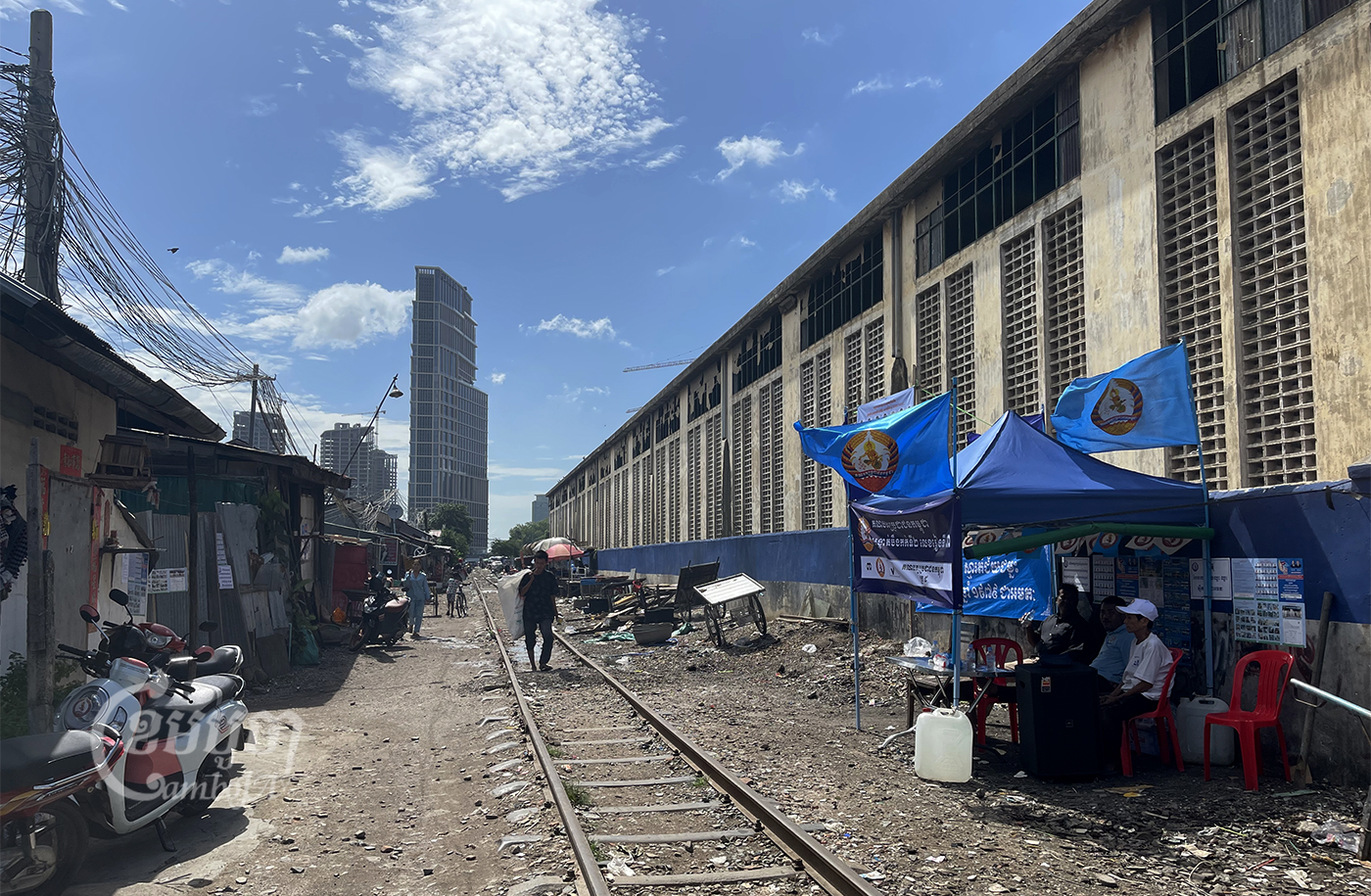
Am Sam Ath, operations director of the human rights group Licadho, said affected people want to see the promise of a solution rather than just knowing the parties’ policies during the election campaign.
“People want to see which parties can address their issue, especially the commune chief who [is supposed to] protect the people’s benefit in the community,” he said.
He added that the election of the commune chief is important because they are supposed to live among the people and know the issues of the people. (Additional reporting by Seoung Nimol)


